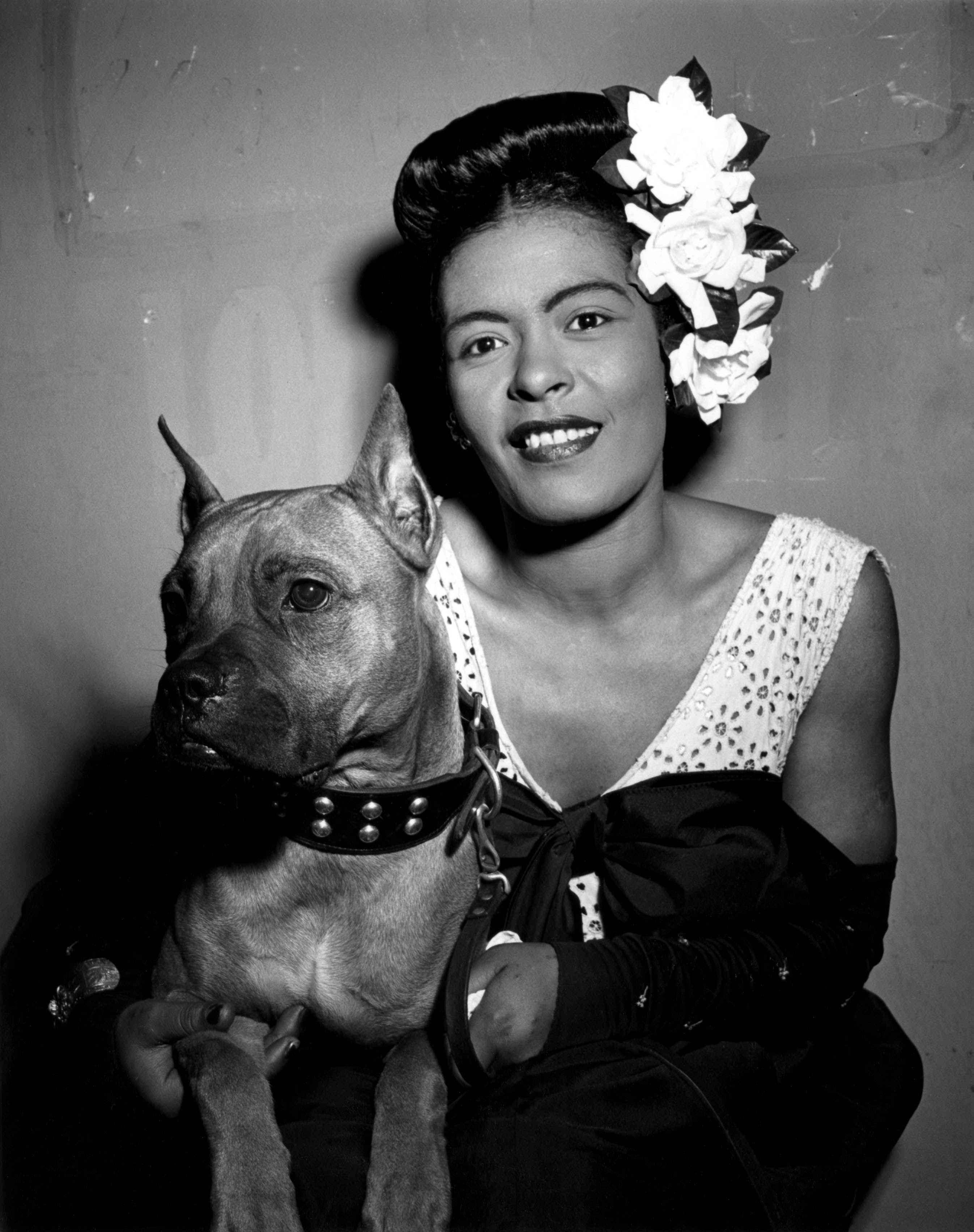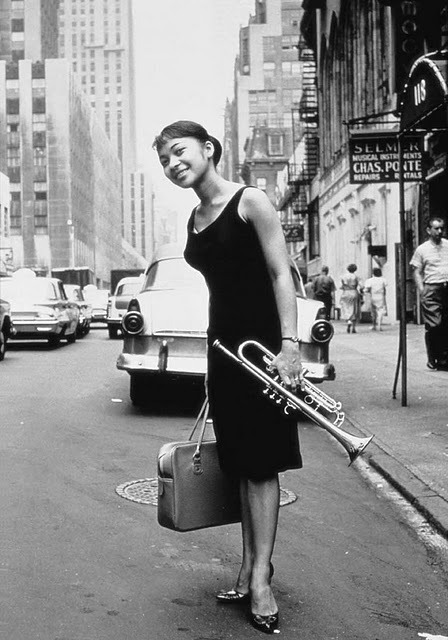Billie Holiday (Filadélfia, 7 de Abril, 1915 — Nova Iorque, 17 de Julho, 1959), Lady Day para os fãs, é por muitos considerada a maior de todas as cantoras do jazz.
Nascida Eleanor Fagan Gough, foi criada em Baltimore por pais adolescentes. Quando nasceu, seu pai, Clarence Holiday, tinha quinze anos de idade e sua mãe, Sara Fagan, apenas treze . Seu pai, guitarrista e banjista, abandonou a família quando Billie ainda era bebê, seguindo viagem com uma banda de jazz. Sua mãe, também inexperiente, freqüentemente a deixava com familiares.

Billie Holiday
Menina americana negra e pobre, Billie passou por todos os infortúnios possíveis. Aos dez anos foi violentada por um vizinho, e internada numa casa de correção. Aos doze, trabalhava lavando assoalhos em prostíbulo e aos catorze anos, morando com sua mãe em Nova York, caiu na prostituição.

Billie Holiday
Sua vida como cantora começou em 1930. Estando mãe e filha ameaçadas de despejo por falta de pagamento de sua moradia, Billie sai à rua em desespero, na busca de algum dinheiro. Entrando em um bar do Harlem, ofereceu-se como dançarina, mostrando-se um desastre. Penalizado, o pianista perguntou-lhe se sabia cantar. Billie cantou e saiu com um emprego fixo.

Billie Holiday
Após três anos cantando em diversas casas, atraiu a atenção do crítico John Hammond, através de quem ela gravou seu primeiro disco, em companhia de Benny Goodman. Era o real início de sua carreira. Atingiu a celebridade, apresentando-se com as orquestras de Duke Ellington, Teddy Wilson, Count Basie e Artie Shaw, e ao lado de Louis Armstrong.

Billie Holiday & Louis Armstrong
Billie Holiday foi uma das mais comoventes cantoras de jazz de sua época. Com uma voz etérea, flexível e levemente rouca, Sua dicção, seu fraseado, a sensualidade à flor da voz, expressando incrível profundidade de emoção, a aproximaram do estilo de Lester Young, com quem, em quatro anos, gravou cerca de cinqüenta canções, repletas de swing e cumplicidade.
A partir de 1940, apesar do sucesso, Billie Holiday, sucumbiu ao álcool e às drogas, passando por momentos de depressão, refletindo em sua voz.

Billie Holiday ainda jovem
Pouco antes de sua morte, Billie Holiday publicou sua autobiografia, Lady Sings the Blues, a partir da qual foi feito um filme, em 1972, tendo Diana Ross no papel principal.
Billie Holiday só ganhou a devida fama e respeito após sua morte. Para conhecer sua vida não é preciso ler nenhuma biografia, mas apenas ouvir sua voz interpretando as centenas de preciosidades que deixou gravadas.
Lady Sings the Blues ( O filme)
Lady Sings the Blues (O Ocaso de uma Estrela (título no Brasil) ) é um filme estadunidense de 1972 que narra a vida da cantora de jazz Billie Holiday, tendo como base a autobiografia homônima dela lançada no ano de 1956. Produzido pela Motown Productions para a Paramount Pictures, o filme traz Diana Ross no papel principal. Ainda no elenco, estão os atores Billy Dee Williams e Richard Pryor.
Trailer do filme Lady Sings The Blues
O roteiro foi escrito por Chris Clark, Suzanne De Passe e Terence McCloy tendo como base o livro de Holiday e William Dufty. A direção ficou a cargo de Sidney J. Furie.
Agora vamos ficar com uma emocionante canção:
Strange Fruits, um dos maiores sucessos da cantora
Artigo publicado pelo site: http://www.lastfm.com.br/music/Billie+Holiday/+wiki

Nenhum comentário:
Postar um comentário